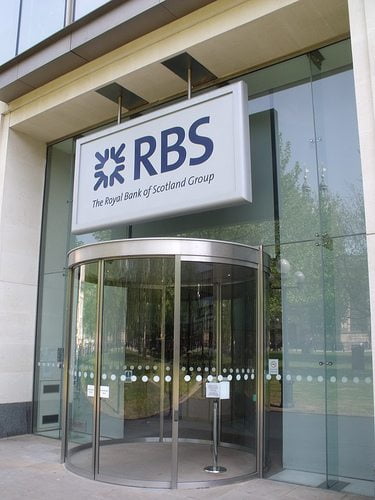

Economy
RBS to create ‘internal bad bank’ in an effort to shed risky assets
The Royal Bank of Scotland (RBS) has confirmed it will not split into a ‘good bank’ and ‘bad bank’. Instead, it will create an internal ‘bad bank’ in order to ringfence its bad assets.
This new arm, which will be called the RBS Capital Resolution, will manage around £38 billion of RBS’s riskiest assets. These assets consume 20% of the bank’s capital with plans to remove them from its balance sheet over the next three years.
RBS is 81% owned by the government following a bailout during the financial crisis. The government is reportedly considering privatising the bank from mid-2014 .
RBS chief executive Ross McEwan commented on the internal bad bank, saying, “Our goal is to remove between 55% and 70% of these assets over the next two years. While there is inevitably uncertainty associated with running down such assets, we have a clear aspiration to remove all these assets from the balance sheet in three years.”
McEwan noted that selling the bad assets would lead to a large write-off of up to £4.5 billion.
RBS also said it was making “good progress” in reducing risks in its non-core division, stating that it had made a £220 billion asset reduction to date. However the bank added, “We are still held back by risky, underperforming assets such as commercial real estate, Ulster Bank and the non-core division.”
Andre Spicer, professor of organisational behaviour at Cass Business School, said, “The decision to create an internal bad bank and delay privatisation will mean senior managers are not distracted with complex restructuring and the bank is not sold off for a bargain basement price which would lose the taxpayers billions.
“Keeping RBS in public hands for a period may not be such a bad thing. Publically owned banks tend to be more efficient and they also force their private sector competitors to be more efficient too.”
Spicer added that the bank was facing some big costs on the horizon, including huge potential fines for manipulating the global currency markets.
In 2013 already, RBS was told to pay over £390m for its role in fixing the Libor rate. The bank also faced a £5.6m penalty after incorrectly reporting more than 44m transactions made with other banks and non-retail financial services firms.
Further reading:
Church of England ready to help launch new ethical bank from RBS division
Ross McEwan to replace Stephen Hester as RBS chief executive
Banking regulator fines RBS £5.6m for inaccurate transaction reporting
A new ethical bank on the horizon? Church of England targets RBS branches






























